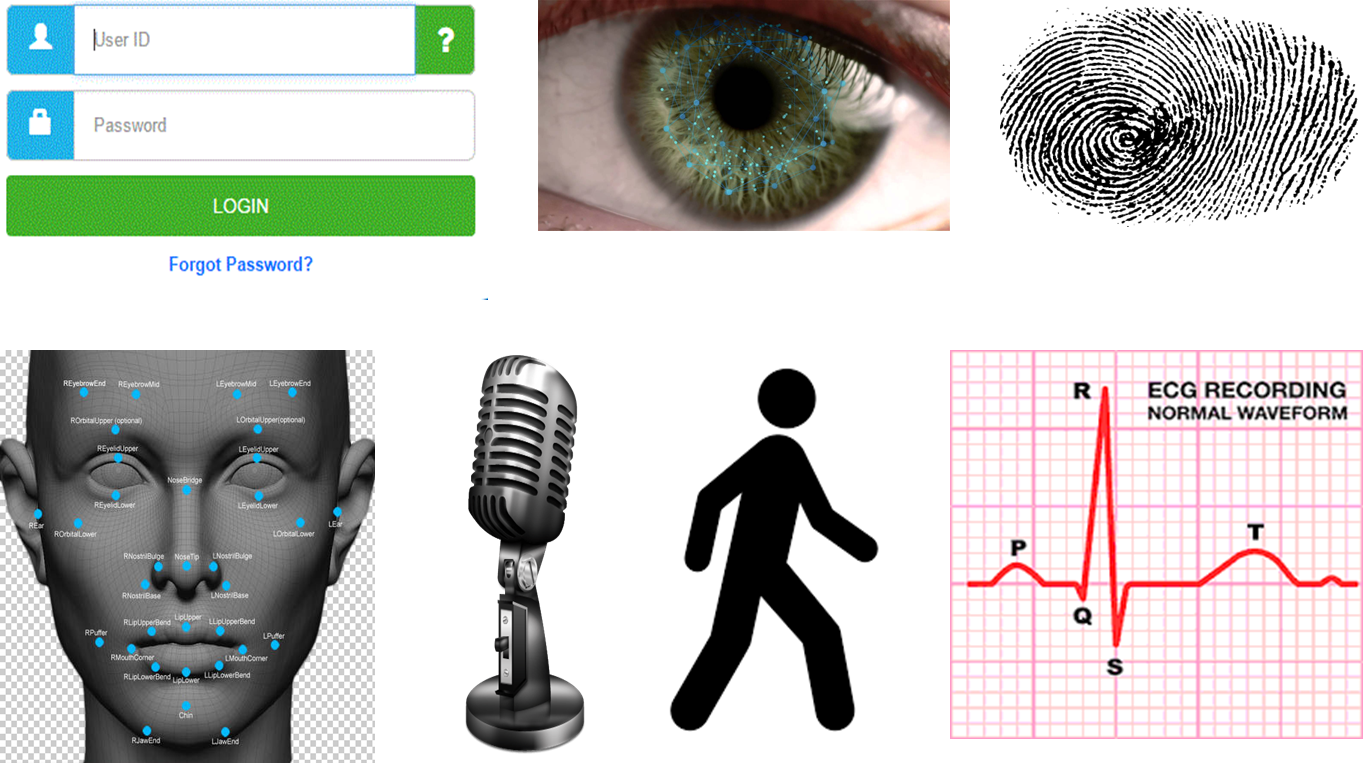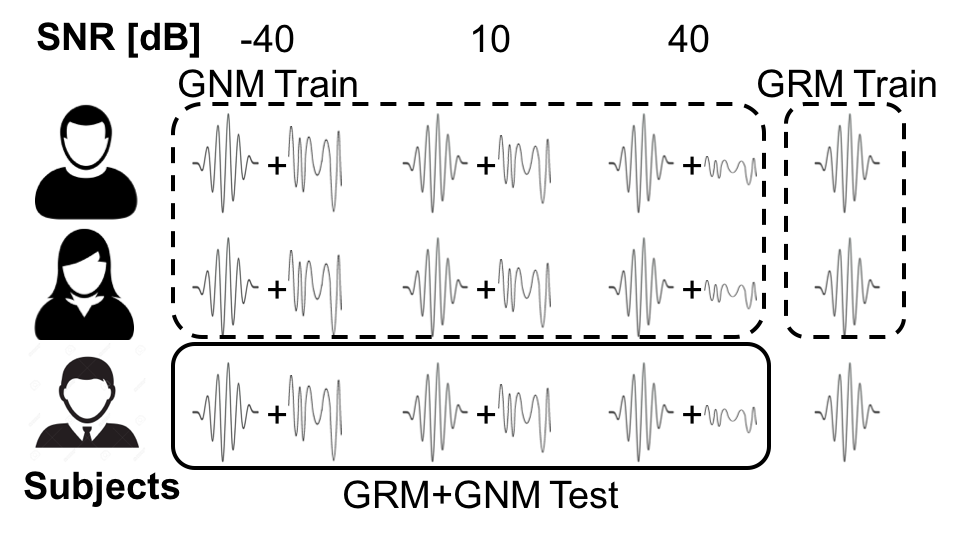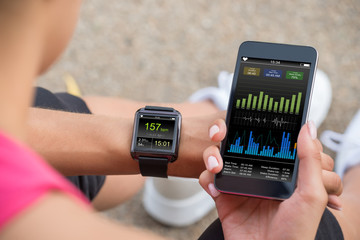Chronic Cough Project (2020 – present):
 In collaboration with clinician researchers from the College of Medicine at the University of Cincinnati, we are conducting studies in patients’ home environments. We are collecting audio recordings from patients with idiopathic pulmonary fibrosis (IPF). This study aims to determine the feasibility of objectively detecting cough symptoms from audio recordings. Findings from this feasibility study can be insightful to extend to develop models that can be deployable to personal devices in the future to detect other symptoms as well for real-time patient monitoring and just-in-time personalized intervention delivery.
In collaboration with clinician researchers from the College of Medicine at the University of Cincinnati, we are conducting studies in patients’ home environments. We are collecting audio recordings from patients with idiopathic pulmonary fibrosis (IPF). This study aims to determine the feasibility of objectively detecting cough symptoms from audio recordings. Findings from this feasibility study can be insightful to extend to develop models that can be deployable to personal devices in the future to detect other symptoms as well for real-time patient monitoring and just-in-time personalized intervention delivery.
Project details and publications can be found here.
Biometric Authentication Project (2020 – present):
 We are conducting studies to determine the feasibility of developing implicit authentication models that can validate a user based on physiological soft biometrics, such as heart rate, and behavioral soft biometrics, such as breathing patterns, to enable the development of a seamless mechanism to identify a user uninterruptedly. We also investigate the potential risks of losing/leaking biometric samples.
We are conducting studies to determine the feasibility of developing implicit authentication models that can validate a user based on physiological soft biometrics, such as heart rate, and behavioral soft biometrics, such as breathing patterns, to enable the development of a seamless mechanism to identify a user uninterruptedly. We also investigate the potential risks of losing/leaking biometric samples.
Project details and publications can be found here.
Effective Subjective Reporting Project (2021 – present):
Though personal devices, such as smartphones and smartwatches, are making our life easier with a wide range of services, including health and wellness monitoring with their improved sensing and computing capabilities, healthcare providers and caregivers widely rely on self-reported surveys to assess a person’s mental health and well-being using standard surveys. Most importantly, there are situations when self-reported surveys play an irreplaceable role. For example, reporting pain. We have been conducting studies to understand various factors and their impacts, as well as to predict the reliability of a survey response to develop systems that enable just-in-time capture of reliable patient information to better understand the patient’s condition.
Project details and publications can be found here.
CAir Project (2018 – 2021):
 The project was conducted by the Smart System Integration team at IBM Research, Zurich, with a primary focus on developing automated management and prevention of Chronic Obstructive Pulmonary Disease (COPD) using multi-sensor data-fusion techniques. COPD is expected to be the third leading cause of death worldwide by 20301. This was a joint collaboration project among researchers from IBM Zurich, IBM Thomas J. Watson Research Center, Yorktown, NY, and docdok.health, a swiss healthcare provider. The ultimate goal of the project was to develop a set of sensors and machine learning models aiming to improve the life quality of COPD patients, facilitate patient-physician communication, and simultaneously reduce the financial burden on healthcare systems, which is expected to be more than $90 billion in the US by 20202.
The project was conducted by the Smart System Integration team at IBM Research, Zurich, with a primary focus on developing automated management and prevention of Chronic Obstructive Pulmonary Disease (COPD) using multi-sensor data-fusion techniques. COPD is expected to be the third leading cause of death worldwide by 20301. This was a joint collaboration project among researchers from IBM Zurich, IBM Thomas J. Watson Research Center, Yorktown, NY, and docdok.health, a swiss healthcare provider. The ultimate goal of the project was to develop a set of sensors and machine learning models aiming to improve the life quality of COPD patients, facilitate patient-physician communication, and simultaneously reduce the financial burden on healthcare systems, which is expected to be more than $90 billion in the US by 20202.
[1] According to the World Health Organization
[2] According to the Centers for Disease Control and Prevention
Project details and publications can be found here.
NetHealth Study (2015 – 2021):
 The NetHealth study is designed to assess the health trends of a closely networked, on-campus undergraduate student population. This running study involves ~900 students (both iPhone and Android users). Using smartphones, we are collecting various types of system information (e.g., battery charge level, charging status), user activity data (e.g., screen lock/unlock, display on/off, browsing history, app use, audio port status), communication data (e.g., phone call, SMS, MMS), location data, and proximity information (WiFi/Bluetooth scan records). We also use Fitbits to collect subjects’ physiological data, such as heart rate, calorie burn, step counts, activity type, and activity intensity. In this study, we investigate health and well-being tracking, phone call behavior analysis and prediction, sleep quality assessment and forecasts, and places of importance discovery from alternative data using cooperative approaches.
The NetHealth study is designed to assess the health trends of a closely networked, on-campus undergraduate student population. This running study involves ~900 students (both iPhone and Android users). Using smartphones, we are collecting various types of system information (e.g., battery charge level, charging status), user activity data (e.g., screen lock/unlock, display on/off, browsing history, app use, audio port status), communication data (e.g., phone call, SMS, MMS), location data, and proximity information (WiFi/Bluetooth scan records). We also use Fitbits to collect subjects’ physiological data, such as heart rate, calorie burn, step counts, activity type, and activity intensity. In this study, we investigate health and well-being tracking, phone call behavior analysis and prediction, sleep quality assessment and forecasts, and places of importance discovery from alternative data using cooperative approaches.
Project details and publications can be found here.
NetSense Study (2011 – 2013):
 The NetSense study was primarily designed to investigate how the social network evolves among on-campus undergraduate students with varying backgrounds. The study ran over two years on 200 students, where we captured subjects’ phone usage (battery level, charging information) and communication data (sms, MMS, phone call) as well as phone sensor data (location, wifi, and Bluetooth proximity records, phone screen on/off record) using their own android phones.
The NetSense study was primarily designed to investigate how the social network evolves among on-campus undergraduate students with varying backgrounds. The study ran over two years on 200 students, where we captured subjects’ phone usage (battery level, charging information) and communication data (sms, MMS, phone call) as well as phone sensor data (location, wifi, and Bluetooth proximity records, phone screen on/off record) using their own android phones.
Project details and publications can be found here.